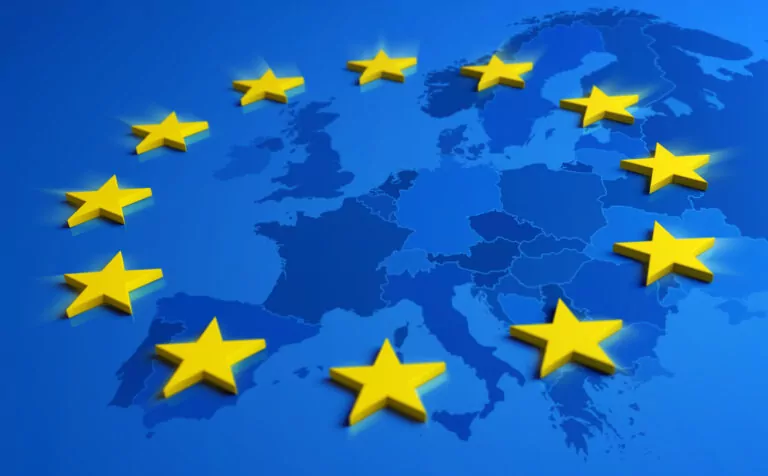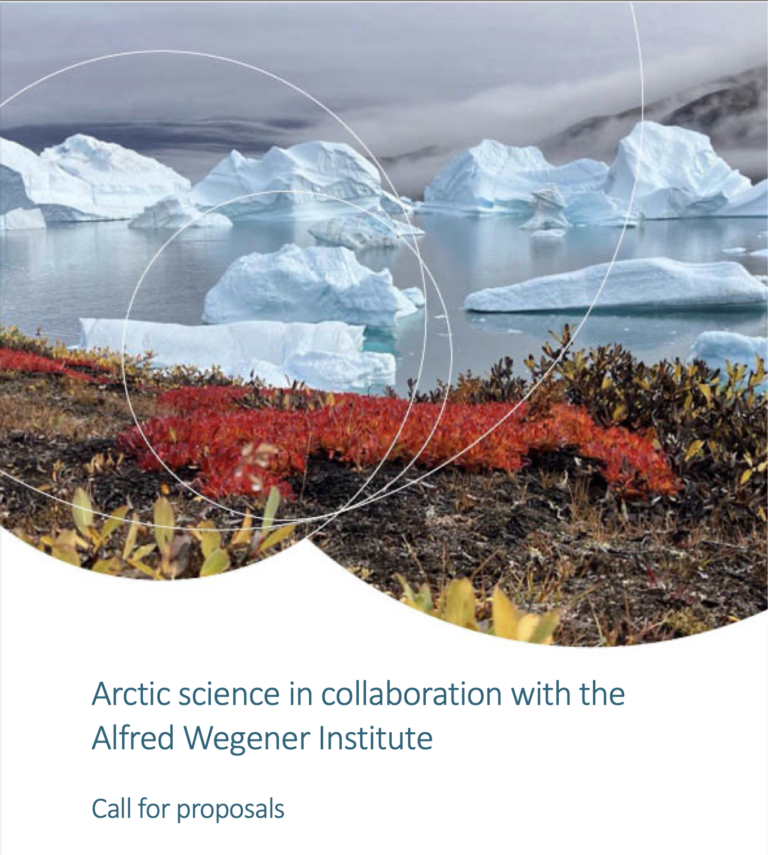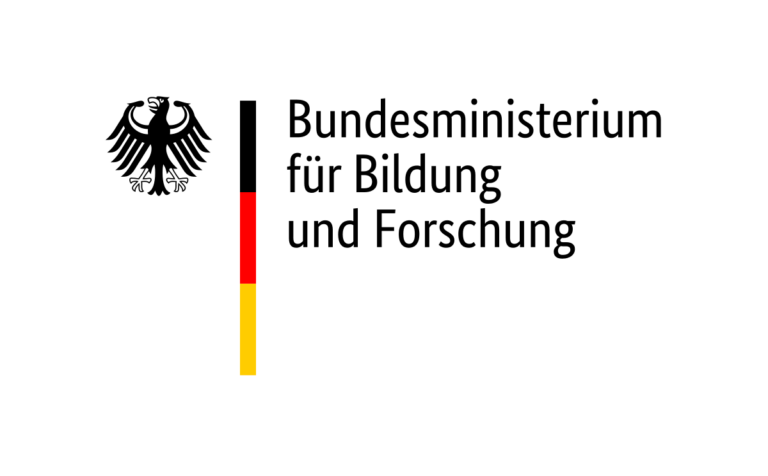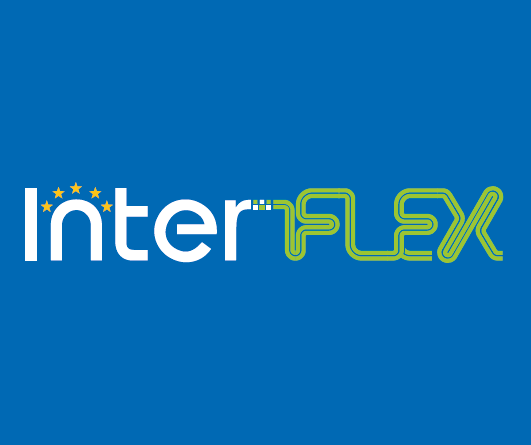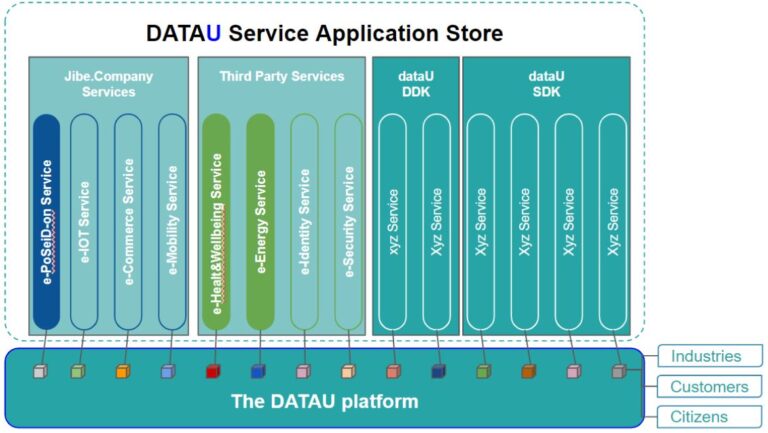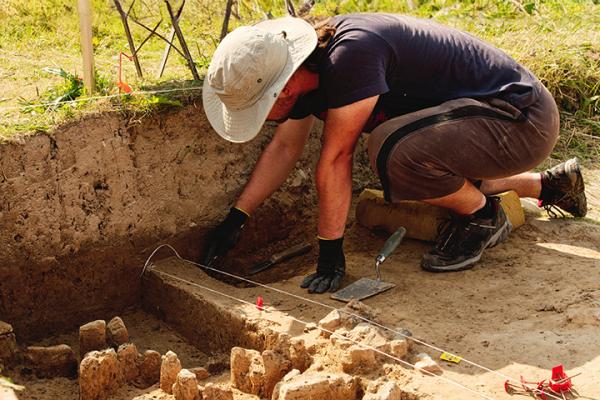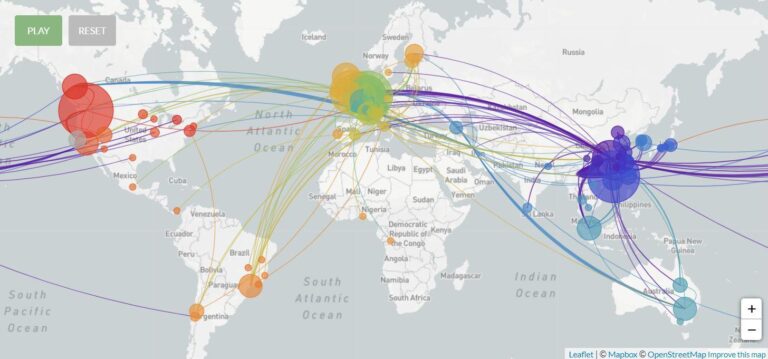Add to favorites:
Share:
Projects should contribute to all of the following expected outcomes:
- Findings from thorough end-to-end testing based on real use cases contribute to a seamlessly working, user-friendly, inclusive and powerful European Collaborative Cloud for Cultural Heritage (ECCCH).
- By documenting and communicating the use cases deployed, a wide collection of innovative uses of the ECCCH is elaborated, which contributes to exemplify and illustrate its benefits and attract new users and user groups.
- By identifying and implementing improvements and engaging with users, significant contributions are made for the ECCCH to be widely used by European cultural heritage professionals and researchers, enabling new ways to interact, cooperate and co-create, thus supporting the generation of new knowledge and opening of new research paradigms.
This topic aims at implementing real use cases and carrying out demanding end-to-end testing of the platform and its tools, in order to verify its capabilities and improve the ECCCH.
The activities carried out should focus on concrete use cases, undertaken by the participating institutions, professionals and researchers with a view to improve their results or work processes.
The activities carried out should make use of several of the key features of the ECCCH, including the user tools implemented on it[1]. Such key features may include use of the advanced digital twins, of the large-scale cooperation and co-creation features, of the digital continuum or of the advanced features for commercial cooperation with, for example, cultural and creative industries[2]. Activities carried out may also focus on the seamless interconnection of the ECCCH with other related platforms such as the Common European Data Space for Cultural Heritage and the European Open Science Cloud. Proposals should outline a focus of the planned activities that best achieve the expected outcomes, which may include some of the aspects mentioned.
Activities should involve a wide range of different organisations from across Europe, in accordance with the focus chosen. Entities from at least five different Member States or Associated Countries should be involved as active users of the ECCCH platform. Also, entities of different characteristics should be involved, such as small and large organisations, from different subsectors/areas of activity or scientific disciplines, etc.
The activities carried out and the results generated should be properly documented so as to serve as a good base for improvements or corrections of the platform and/or of the user tools implemented on it, and also for communicating innovative uses of the ECCCH. Contributions should be made to extend the user base of the ECCCH by promoting use cases and outreach activities, possibly together with or coordinated with other ECCCH projects.
Projects funded under this topic may build on testing or other activities carried out by other ECCCH projects, but must not duplicate activities that are funded under other ECCCH projects. Activities should add new value to the ECCCH. Therefore, projects funded under this topic should coordinate closely with previously funded ECCCH projects and provide for sufficient flexibility so as to avoid duplication and ensure that the activities carried out offer important contributions to validate and improve the platform.
Proposals should foresee own capacity to implement important improvements and fix problems detected. Such modifications or extensions of the ECCCH platform functionality should be carried out in accordance with the data model and the software development and documentation guidelines of the ECCCH, established by the project funded under topic HORIZON-CL2-2023-HERITAGE-ECCCH-01-01[3]. All software and other related deliverables should be compliant with the guidelines elaborated by the project funded under topic HORIZON-CL2-2023-HERITAGE-ECCCH-01-01, and should be implemented in compliance with the design of the ECCCH, using the low-level libraries established by the project funded under topic HORIZON-CL2-2023-HERITAGE-ECCCH-01-01.
All software developed should be open source, licensed under a CC0 public domain dedication or under an open-source licence as recommended by the Free Software Foundation[4] and the Open-Source Initiative[5]. If the use of open source software components would require disproportional efforts or significantly diminish the quality or performance of the software, proprietary components may be used provided that: An open functional replacement is available; they do not introduce proprietary data formats or Application Programming Interfaces; a full user license free of charge for an unlimited period of time is granted to the consortium responsible for the ECCCH and all its users. Applicants should state clearly if all developed software will be open source, and if not clearly explain the reasons.
To the extent that data is produced, efforts should be made to ensure that it is FAIR (Findable, Accessible, Interoperable and Re-usable). To the extent that new or modified interoperability standards need to be developed for data sharing within and across data ecosystems, these should build on the FAIR data principles and leverage already adopted practices, especially those in the relevant European common data spaces and in the European Research Infrastructures.
Financial support to third parties may be used to facilitate the engagement with ECCCH users beyond the project consortium. The financial support to third parties can only be provided in the form of grants.
In order to ensure good coordination among the different ECCCH projects, proposals should make provisions to actively participate in the common activities of the ECCCH initiative. Projects funded under this topic should coordinate technical work with the relevant projects funded under other call topics of the ECCCH initiative, and contribute to the activities and objectives of the project funded under the topic HORIZON-CL2-2023-HERITAGE-ECCCH-01-01. Proposals should include a budget for the attendance to regular joint coordination meetings, and may consider covering the costs of any other joint activities without the prerequisite to detail concrete joint activities at proposal stage.
Projects funded under this topic should set up their project websites under the common ECCCH website, managed by the project funded under topic HORIZON-CL2-2023-HERITAGE-ECCCH-01-01.
The Commission expects the different projects funded under this topic to establish regular coordination mechanisms in order to ensure synchronised planning, as well as synergy and/or complementarity of deliverables and outcomes, where this is appropriate.
The Commission estimates that a project duration of approximately 2 – 2.5 years is appropriate for the projects funded under this topic.
Please also refer to the Destination introduction text to consider some key characteristics of the vision for the ECCCH.
[1] For an orientation of the range of user tools being developed, please refer to the previous ECCCH call topics in the Horizon Europe Cluster 2 Work Programmes 2023 and 2024.
[2] The key features of the ECCCH are further explained in the Destination introduction text and in the ‘Report on a European collaborative cloud for cultural heritage - Ex – ante impact assessment’ available here:
[3] See further https://cordis.europa.eu/project/id/101157364
[4] https://www.gnu.org/licenses/license-list#SoftwareLicense
Expected Outcome
Projects should contribute to all of the following expected outcomes:
- Findings from thorough end-to-end testing based on real use cases contribute to a seamlessly working, user-friendly, inclusive and powerful European Collaborative Cloud for Cultural Heritage (ECCCH).
- By documenting and communicating the use cases deployed, a wide collection of innovative uses of the ECCCH is elaborated, which contributes to exemplify and illustrate its benefits and attract new users and user groups.
- By identifying and implementing improvements and engaging with users, significant contributions are made for the ECCCH to be widely used by European cultural heritage professionals and researchers, enabling new ways to interact, cooperate and co-create, thus supporting the generation of new knowledge and opening of new research paradigms.
Scope
This topic aims at implementing real use cases and carrying out demanding end-to-end testing of the platform and its tools, in order to verify its capabilities and improve the ECCCH.
The activities carried out should focus on concrete use cases, undertaken by the participating institutions, professionals and researchers with a view to improve their results or work processes.
The activities carried out should make use of several of the key features of the ECCCH, including the user tools implemented on it[1]. Such key features may include use of the advanced digital twins, of the large-scale cooperation and co-creation features, of the digital continuum or of the advanced features for commercial cooperation with, for example, cultural and creative industries[2]. Activities carried out may also focus on the seamless interconnection of the ECCCH with other related platforms such as the Common European Data Space for Cultural Heritage and the European Open Science Cloud. Proposals should outline a focus of the planned activities that best achieve the expected outcomes, which may include some of the aspects mentioned.
Activities should involve a wide range of different organisations from across Europe, in accordance with the focus chosen. Entities from at least five different Member States or Associated Countries should be involved as active users of the ECCCH platform. Also, entities of different characteristics should be involved, such as small and large organisations, from different subsectors/areas of activity or scientific disciplines, etc.
The activities carried out and the results generated should be properly documented so as to serve as a good base for improvements or corrections of the platform and/or of the user tools implemented on it, and also for communicating innovative uses of the ECCCH. Contributions should be made to extend the user base of the ECCCH by promoting use cases and outreach activities, possibly together with or coordinated with other ECCCH projects.
Projects funded under this topic may build on testing or other activities carried out by other ECCCH projects, but must not duplicate activities that are funded under other ECCCH projects. Activities should add new value to the ECCCH. Therefore, projects funded under this topic should coordinate closely with previously funded ECCCH projects and provide for sufficient flexibility so as to avoid duplication and ensure that the activities carried out offer important contributions to validate and improve the platform.
Proposals should foresee own capacity to implement important improvements and fix problems detected. Such modifications or extensions of the ECCCH platform functionality should be carried out in accordance with the data model and the software development and documentation guidelines of the ECCCH, established by the project funded under topic HORIZON-CL2-2023-HERITAGE-ECCCH-01-01[3]. All software and other related deliverables should be compliant with the guidelines elaborated by the project funded under topic HORIZON-CL2-2023-HERITAGE-ECCCH-01-01, and should be implemented in compliance with the design of the ECCCH, using the low-level libraries established by the project funded under topic HORIZON-CL2-2023-HERITAGE-ECCCH-01-01.
All software developed should be open source, licensed under a CC0 public domain dedication or under an open-source licence as recommended by the Free Software Foundation[4] and the Open-Source Initiative[5]. If the use of open source software components would require disproportional efforts or significantly diminish the quality or performance of the software, proprietary components may be used provided that: An open functional replacement is available; they do not introduce proprietary data formats or Application Programming Interfaces; a full user license free of charge for an unlimited period of time is granted to the consortium responsible for the ECCCH and all its users. Applicants should state clearly if all developed software will be open source, and if not clearly explain the reasons.
To the extent that data is produced, efforts should be made to ensure that it is FAIR (Findable, Accessible, Interoperable and Re-usable). To the extent that new or modified interoperability standards need to be developed for data sharing within and across data ecosystems, these should build on the FAIR data principles and leverage already adopted practices, especially those in the relevant European common data spaces and in the European Research Infrastructures.
Financial support to third parties may be used to facilitate the engagement with ECCCH users beyond the project consortium. The financial support to third parties can only be provided in the form of grants.
In order to ensure good coordination among the different ECCCH projects, proposals should make provisions to actively participate in the common activities of the ECCCH initiative. Projects funded under this topic should coordinate technical work with the relevant projects funded under other call topics of the ECCCH initiative, and contribute to the activities and objectives of the project funded under the topic HORIZON-CL2-2023-HERITAGE-ECCCH-01-01. Proposals should include a budget for the attendance to regular joint coordination meetings, and may consider covering the costs of any other joint activities without the prerequisite to detail concrete joint activities at proposal stage.
Projects funded under this topic should set up their project websites under the common ECCCH website, managed by the project funded under topic HORIZON-CL2-2023-HERITAGE-ECCCH-01-01.
The Commission expects the different projects funded under this topic to establish regular coordination mechanisms in order to ensure synchronised planning, as well as synergy and/or complementarity of deliverables and outcomes, where this is appropriate.
The Commission estimates that a project duration of approximately 2 – 2.5 years is appropriate for the projects funded under this topic.
Please also refer to the Destination introduction text to consider some key characteristics of the vision for the ECCCH.
[1] For an orientation of the range of user tools being developed, please refer to the previous ECCCH call topics in the Horizon Europe Cluster 2 Work Programmes 2023 and 2024.
[2] The key features of the ECCCH are further explained in the Destination introduction text and in the ‘Report on a European collaborative cloud for cultural heritage - Ex – ante impact assessment’ available here:
[3] See further https://cordis.europa.eu/project/id/101157364
[4] https://www.gnu.org/licenses/license-list#SoftwareLicense
Partner Requests
Explore Real Collaboration Opportunities
🔍 As a logged-in member, you now have exclusive access to all active Partner Requests for this Funding Call.
See who’s looking for collaborators, explore exciting project ideas, and discover how others are planning to make an impact.
💡 Use these insights to get inspired—or take the next step and start a request of your own (3 entries for free).
Log in or registrate here for free.
You must be logged in to submit or manage a partner request.
Ask our experts about this call
Connect with the Listing Owner!
💬 Please log in now to send a direct message to our experts and ask your questions. Not a member yet? Sign up for free and start connecting today!
Related Funding and Finance Opportunities
Unlock Exclusive Funding Opportunities!
🔑 Get instant access to tailored funding opportunities that perfectly match your needs. This powerful feature is exclusively available to our premium members—helping you save time, stay ahead of the competition, and secure the right funding faster.
Upgrade to Premium now and never miss an important opportunity again! Already a premium member? Log in here to explore your matches.
Related Innovation Offers
Related Knowledgebase Resources
Discover More with Premium: Related Knowledge Resources
🔒 You’re missing out on expert-curated knowledge specifically matched to this topic. As a Premium member, you gain exclusive access to in-depth articles, guides, and insights that help you make smarter decisions, faster.
Whether you’re preparing a funding proposal, researching a new market, or just need reliable information—our Premium knowledge matches save you hours of research and point you directly to what matters.
Upgrade to Premium now and instantly unlock relevant knowledge tailored to your needs! Already a member? Log in here to view your personalized content.









